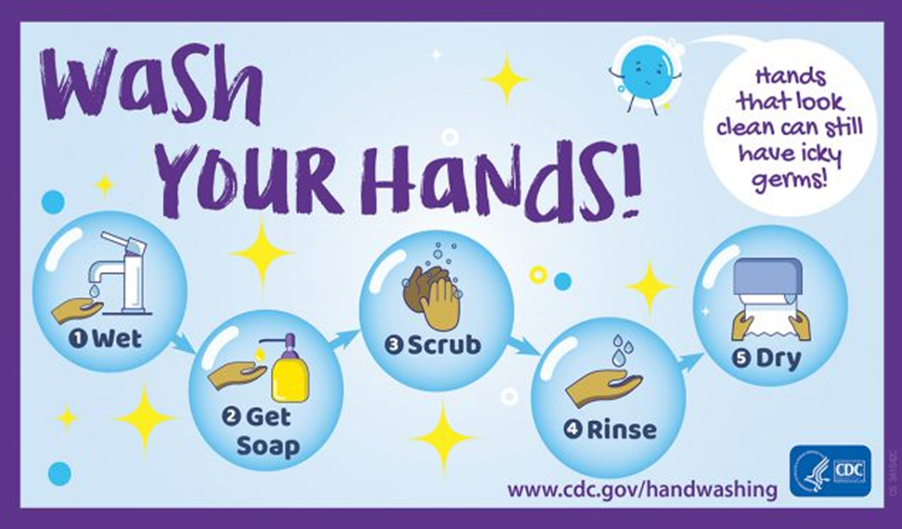Effective hand hygiene reduces the risk of meat contamination and the transmission of foodborne disease
By Oluwadara Alegbeleye, Postdoctoral Fellow

Clean hands are essential to health and effective handwashing is one of the simplest ways to prevent the spread of germs. Hand hygiene is particularly important in minimizing food safety risks along food animal chains, as there are many diseases that can be transmitted to humans from polluted meat. Zoonotic agents such as Salmonella, Campylobacter, and E. coli can cause food poisoning, presenting major public health risks.
From farm to table: It’s a (dangerous) microbial world
There are multiple opportunities for transferring disease-causing organisms among farmers and animal handlers, people who handle carcasses and raw meat, as well as during food preparation in retail, restaurant and other hospitality and food service settings. Poor handwashing can increase the risk of contamination during activities such as feeding, milking, and cleaning farm facilities. Ineffective hand hygiene during slaughtering and processing can cause pathogens on hands to be transferred to equipment, surfaces, several meat batches and potentially to humans. Poor hygiene practices among workers who handle raw animal products in delis, restaurants, and other food service establishments can potentially introduce pathogens into salads and other ready-to-eat dishes, leading to the outbreak of foodborne illnesses.
Risks are also present at the packaging and distribution stage. Workers who do not wash their hands carefully can contaminate packaging materials and surfaces that come into contact with animal products. The contaminated packaging can then spread pathogens to consumers’ kitchens. Consumers with poor handling and hygienic practices can introduce pathogens to utensils, surfaces, and other food in their refrigerators and kitchens with potentially fatal consequences.
Handwashing matters
Several regulatory authorities such as the United States Centers for Disease Control and Prevention (CDC) recommend handwashing as a strategy to minimise the risks of foodborne illnesses, including along food animal chains. Many countries have regulations and guidelines in place that require food handlers in animal food chains to practice good hygiene, including proper handwashing. Compliance with these regulations especially in many low and middle-income countries is, however, lax due to several reasons.
Water scarcity can limit the amount of water available for handwashing and compromise hygiene. It is crucial that government and other relevant actors improve access to safe water for handwashing. Strategies to improve access to safe water include implementing water treatment and purification methods and routine testing of water sources for contamination including microbial contamination. Water-saving technologies and practices in food handling facilities can also optimize water use. The use of alcohol-based hand sanitizers (with at least 60 percent alcohol) is also a potentially useful strategy in water-scarce settings or areas with poor handwashing facilities.
Wash, wash, wash your hands
Global Handwashing Day reminds us to go back to the basics to ensure good health, prevent disease, and save lives. Handwashing can help prevent foodborne illnesses. It can reduce the number of children who fall sick, thereby preventing school absenteeism. Handwashing is a practical skill that is easily learned and taught. Encouraging people to wash their hands, including those involved in the animal food chain, food handlers, and consumers, remains the first and most basic line of defense against the spread of disease. A combination of infrastructure development and maintenance, education, fail-safe contingency plans and proper enforcement can contribute meaningfully to assuring food safety along food animal chains.
The International Water Management Institute (IWMI), through the CGIAR Initiative on One Health is seeking to mitigate zoonotic diseases, enhance food and water safety, and reduce antimicrobial resistance by addressing water-related challenges. IWMI is conducting research in the Akaki watershed in Ethiopia and the Song watershed in India to inform national One Health planning processes and promote evidence-based policies for water quality improvement. The goal is to create a healthier and more sustainable future through integrated One Health approaches.

